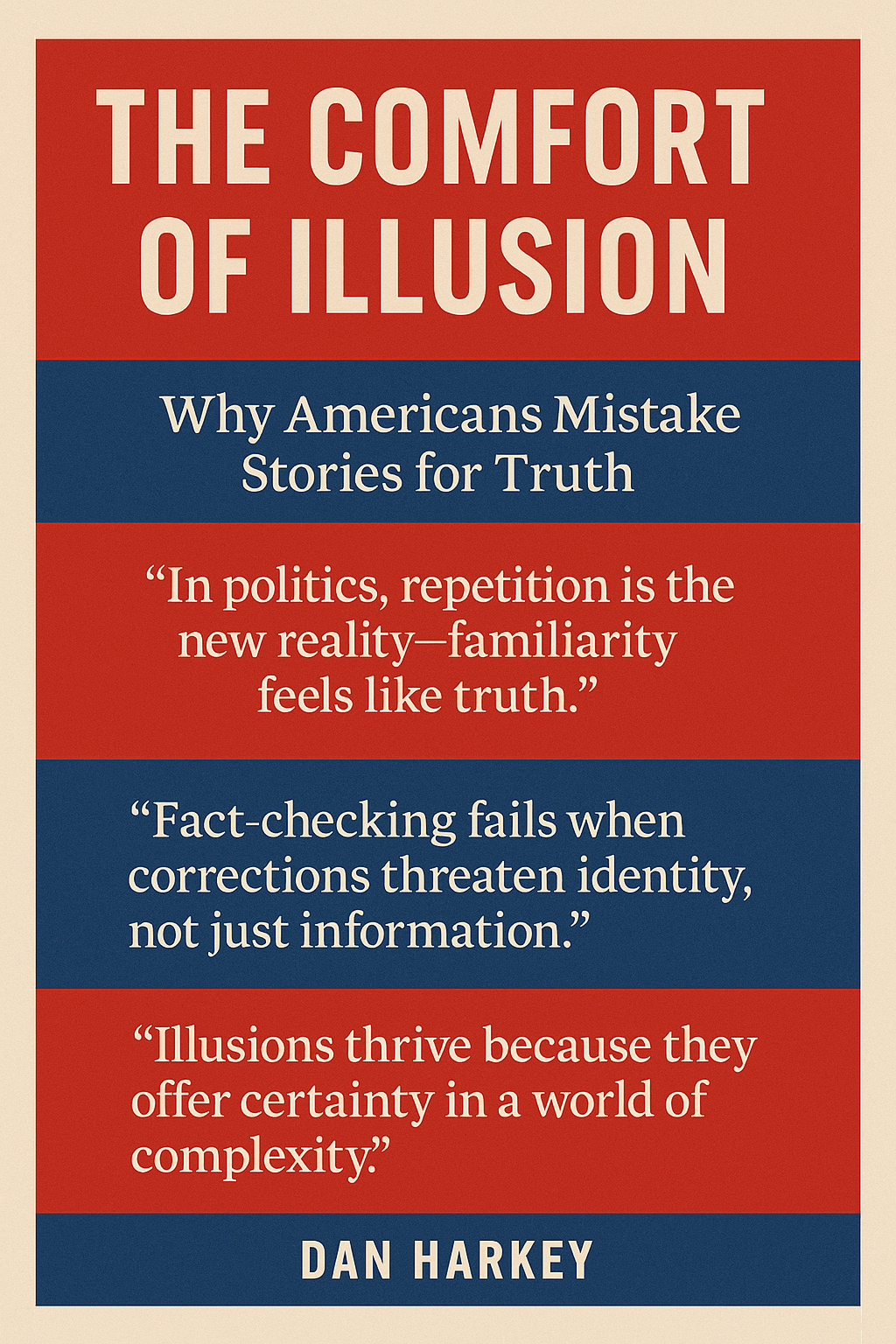Summary
How would the American people react if one day they woke up to realize that their entire existence and culture depended upon accepting a bundle of manufactured illusions, mostly of which were created by someone to exploit, instead of explaining truthful facts?
Repetition Breeds Belief
The human brain loves shortcuts. One of the most powerful is the illusory truth effect: the more often we hear something, the more likely we are to believe it. In an age of 24/7 news cycles and algorithm-driven feeds, repetition is cheap and constant. This power of repetition is something we should be aware of, as it can turn familiarity into a stand-in for truth.
Feelings Trump Facts
Politics is not just a rational exercise, but an emotional theater. Fear, pride, and outrage are potent motivators, and campaigners are aware of this. A story that resonates emotionally will always outcompete a spreadsheet of data. In the “post-truth” era, facts are negotiable; feelings are not. Understanding this emotional aspect of politics can help us engage and empathize with the narratives that shape our reality.
Identity Over Accuracy
For many Americans, political affiliation is not just a preference—it’s a core identity. Accepting a narrative, even a shaky one, signals loyalty to the tribe.. Rejecting it feels like betrayal. This is why fact-checking often fails: it’s not just correcting information; it’s challenging who people believe they are.
Echo Chambers and Algorithms
Social media doesn’t reward accuracy; it rewards engagement. Outrage and affirmation spread faster than nuance. Over time, Americans live in echo chambers, where like-minded individuals constantly reinforce their beliefs, and dissenting facts rarely break through, further solidifying illusion narratives.
The Trust Vacuum
Institutional trust, encompassing government, media, and even science, has reached historic lows. When official sources are suspect, alternative narratives, however flimsy, gain traction. Illusions thrive in this vacuum because they offer certainty in a complex world.
The Post-Truth Paradigm
This is more than lying. In post-truth politics, the very concept of objective reality is under siege. Politicians don’t just bend facts; they question whether facts matter. In truth, inbecoming becomes a matter of illusion, not mistake; it’s a strategy.
The Cost of Comforting Stories
Illusions feel good because they simplify a messy world. However, they come at a price: policies built on illusions often fail. Markets misprice risks. Communities suffer from structural fractures when citizens can’t agree on basic facts.
What Now?
Combating illusions requires more than fact-checking. It demands rebuilding trust, teaching media literacy, and creating incentives for truth to compete with the seductive simplicity of a good story. Until then, illusions will keep winning—because they’re easier to believe.
